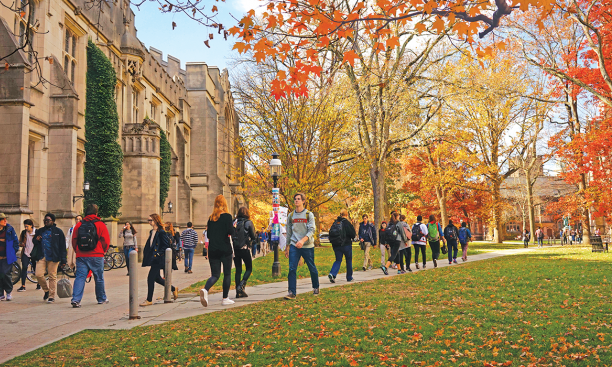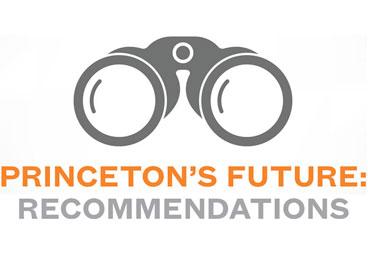
As part of PAW’s continuing coverage of the work of strategic-planning task forces created by President Eisgruber ’83, this issue describes the task force report on general education.
A group charged with reviewing Princeton’s undergraduate course requirements has suggested mandating foreign-language courses for all A.B. students and requiring courses with international content and on “the intersections of culture, identity, and power.” It also recommended changing the academic calendar to allow for a January term.
The general-education task force reviewed the University’s distribution requirements, which mandate that undergraduates take courses in categories including epistemology and cognition, quantitative reasoning, and literature and the arts. The committee decided to leave the number of required courses unchanged, but said A.B. students should have more flexibility in their choices.

Dolan, who chaired the task force, said the proposed changes would better align Princeton with its peer institutions, many of which offer varying types of diversity-course requirements.
To create the necessary space in the academic calendar for a January term, the task force suggested moving the start of the fall semester forward by two weeks, which would allow time for final exams to be held before a two-week winter break. The proposed three-week January term would start immediately after the break, and spring semester would start the last week of January. Reunions and Commencement would also take place a week earlier than they do now.
The task force said a January term would allow students to travel, volunteer, or take a three-week course that would be structured differently than traditional classes. Participation would not be mandatory every year, but the task force said all students should participate in at least one for-credit January course. While the faculty could vote as early as next April on a new calendar, Dolan said, when it would take effect “depends on how we conceptualize and implement the [January] term that will be its centerpiece.”
Other recommendations include:
- Require all A.B. students to take at least one foreign-language course, regardless of existing proficiency.
- Encourage departments to collaborate to create “joint” or “mixed” concentrations, similar to the political-economy program in the politics and economics departments. The task force did not support the idea of a “dual concentration,” as suggested by the task force on the humanities, because requiring students to write two senior theses would result in “less investment in both fields of study.”
- Label courses with a service component within the course catalog to make them more visible to students. However, courses that focus on service and civic engagement should not be mandatory, the task force said.
- Create mandatory for-credit writing-intensive seminars for juniors to help prepare them for their junior and senior independent work.
- Encourage departments that require two junior papers to consider assigning one JP that would offer two units of credit.
- Offer interdisciplinary “Sophomore Signature” courses on social issues such as global migration or public health to help students explore potential majors.
The task force recommended against requiring all students to take a course in statistics or computer science, saying that “making such courses compulsory could counter the genuine student interest.”
The last time Princeton reviewed its general-education requirements was in 1994; the writing and science and technology requirements were modified in 2001 and 2010, respectively.
